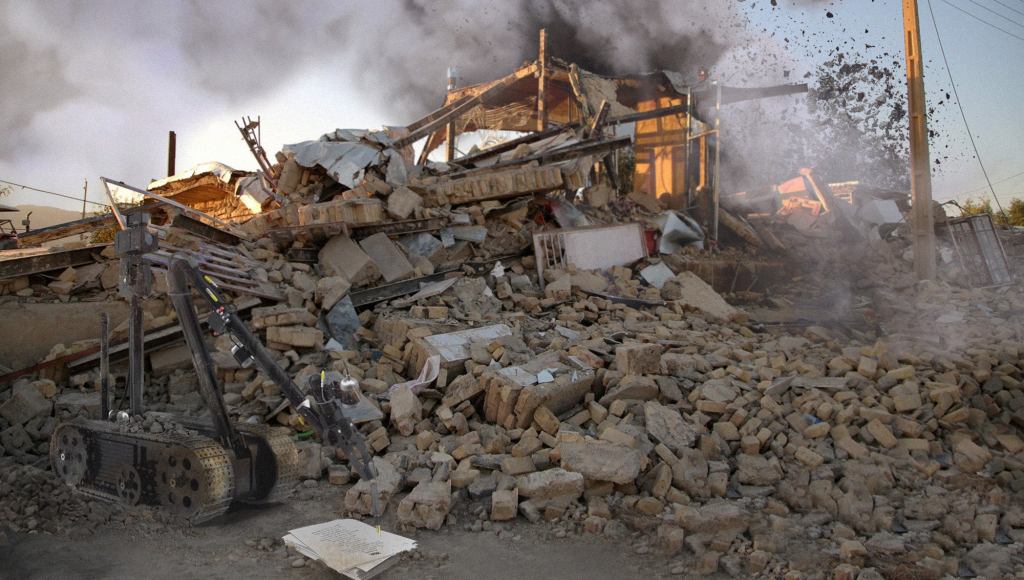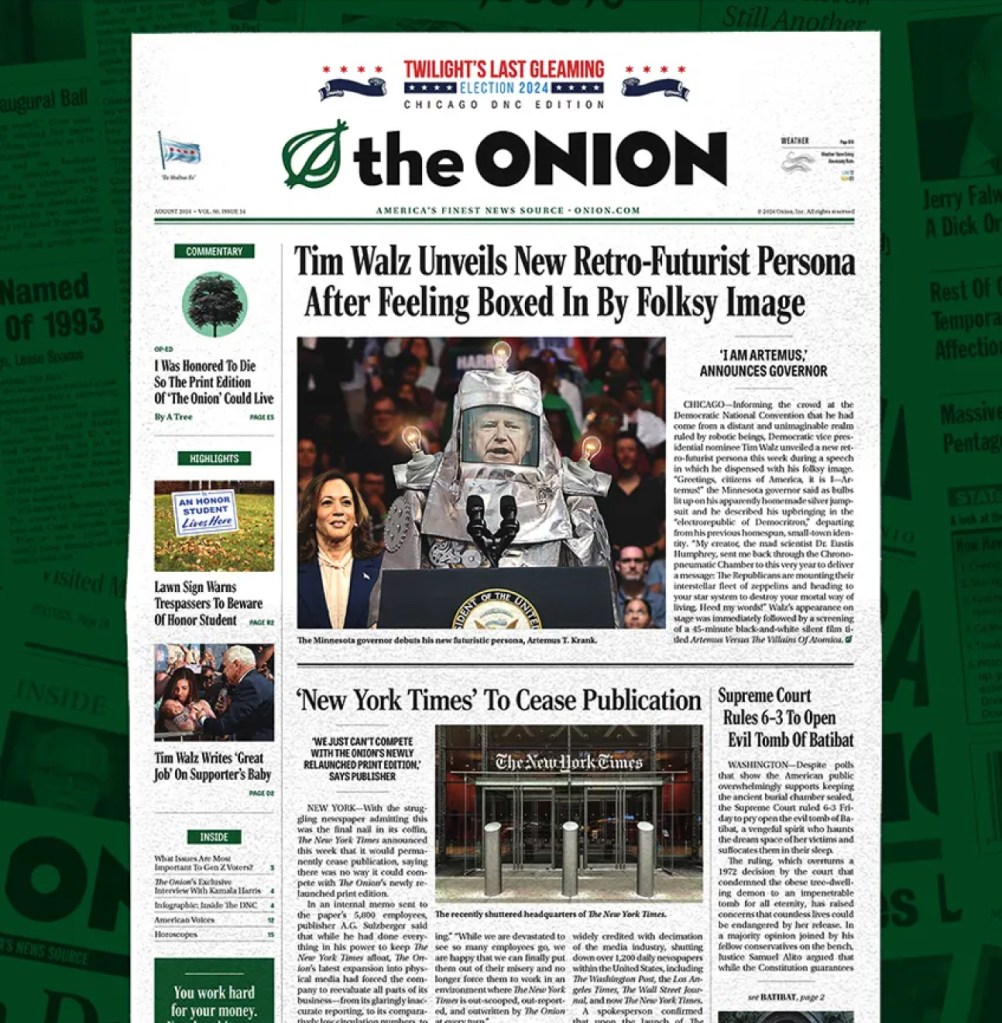WALTHAM, MA—Heralding its latest product as a breakthrough in artificial-intelligence technology, defense contractor Raytheon announced Friday it has built a military robot capable of composing heart-wrenchingly poignant poems about the relentless horrors of war.
The robot, known as the Laureate-IV, reportedly uses sophisticated radar imaging to survey the carnage of war-torn landscapes and runs state-of-the-art facial recognition software to scan the terrified expressions of survivors, data it can then analyze using a complex poetic algorithm to create lyric verse with up to 40 times the pathos of poems produced by human writers.
“With its 17.3 petaflop processor and bomb-proof titanium chassis, this robot can enter any combat zone and, employing poetic devices such as meter, enjambment, apostrophe, and symbolism, give full expression to the anguish and disillusionment war brings,” said Raytheon CEO Thomas A. Kennedy, explaining that a single machine would be able to match the poetic output of several thousand PTSD-ravaged veterans. “Within minutes of deployment, the Laureate-IV can assess the situation on the ground and draft plaintive lines about what it’s like to survive an IED ambush only to be left holding a 20-year-old’s intestines in as he bleeds out from a shrapnel wound, his dreams for life disappearing with the wind-blown desert sands.”
“The result will be beautiful, hauntingly descriptive verse,” the executive added.
According to Raytheon, the robot, which composes sublime poetry about being shipped off to an unfamiliar place and then told to kill strangers for reasons you don’t understand, has been outfitted with several features such as the continuous-track treads that will allow the machine to explore the smoldering craters left behind after bombs have hit a hospital or wedding party.
Engineers confirmed the AI apparatus is equipped with 360-degree optical sensors that can pinpoint thousands of variables during a firefight and, from a distance of 600 meters, zoom in on a single tear running down the face of a traumatized, soot-covered child. The machine can then render this imagery in a very sparse, minimalist poem that evokes the emptiness and futility of war, company officials stated.
“In the past, it would have been necessary to send entire battalions overseas with the hope that at least one surviving soldier would be able to portray the terrible chaos of urban warfare, the deafening blasts of aerial bombardments, and the ghastly screams of dying comrades in incredibly moving works of poetry,” said Gen. Joseph Dunford, chairman of the Joint Chiefs of Staff. “But with this new technology, we can strategically deploy a handful of robots to deftly encapsulate in verse the existential despair that results from seeing a buddy survive dozens of combat missions and then die a random, meaningless death in a friendly fire accident just days before his tour was set to end.”
Added Dunford, “I look forward to reading these brilliantly desolate and disconsolate poems forged in the savage crucible of war.”
Raytheon representatives acknowledged the company experimented with verse-composing computers during the Vietnam War, its earliest prototypes taking up entire warehouses, but the simplistic and often trite poetry they produced could not successfully depict the complex, ungraspable nature of war and ultimately failed to bear vital witness to that troubling conflict.
In recent years, however, the robot’s developers have reportedly been able to employ modern neural networks to refine their systems and work out several bugs, such as the defect that caused the Laureate-I to fill page after page with nothing but the words “We are all pigs to the slaughter.” The engineers expressed hope of following their poetic success with a robot that can write 1,500-page epic novels that dramatize the disparate points of view of dozens of characters all experiencing the same horrific moments of combat.
Officials from Raytheon confirmed they are also exploring commercial applications for the technology and may one day allow the public to purchase robots that write poems capturing the listless mundanity of civilian life.








